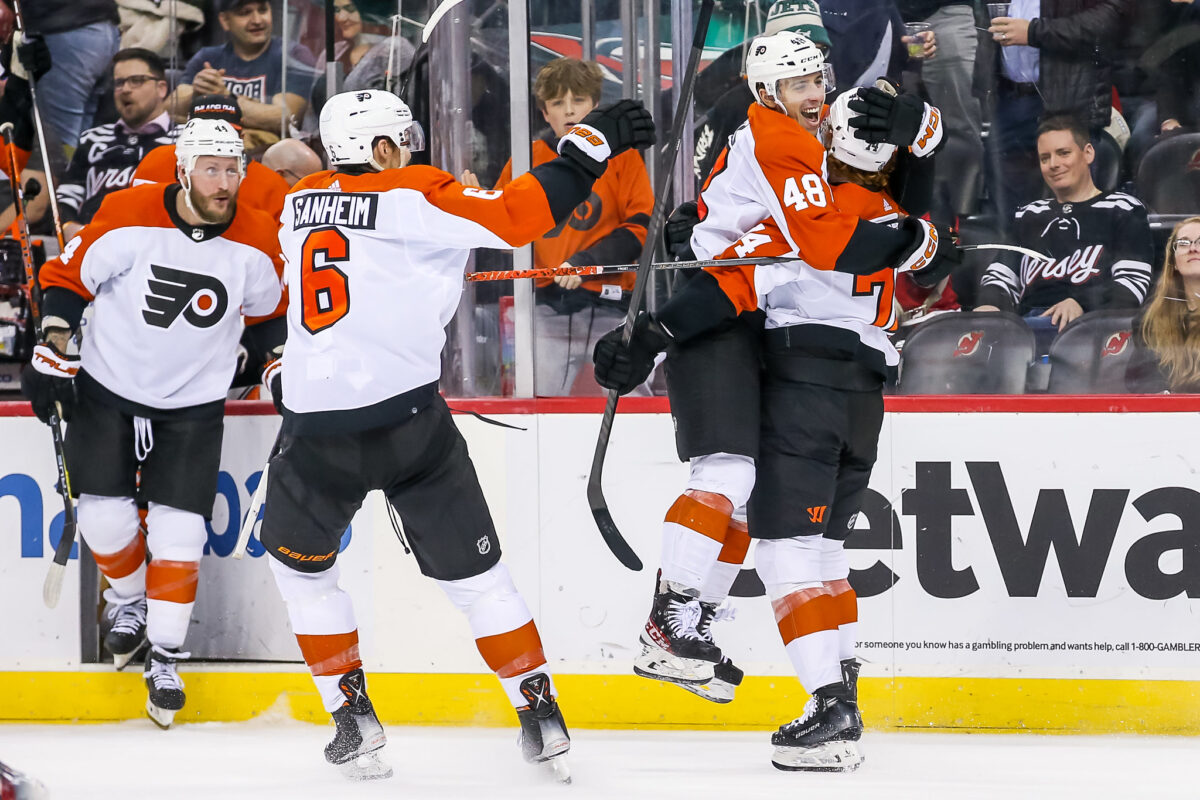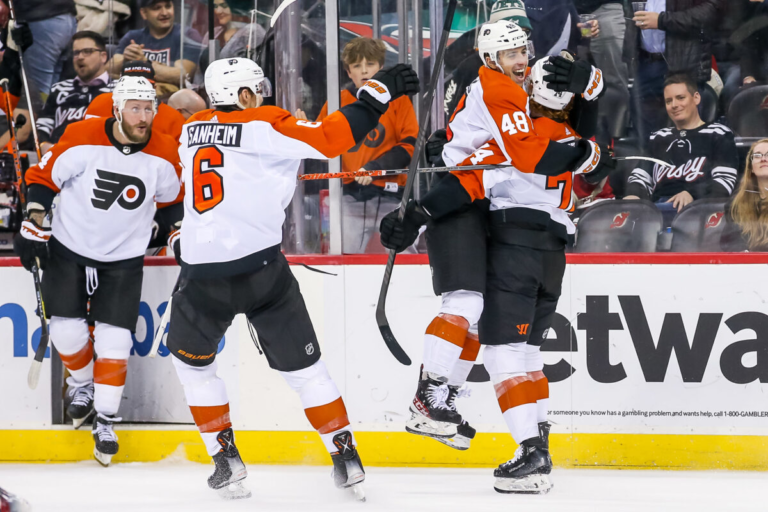Right now, the Philadelphia Flyers have a conundrum with their forward lines. Head coach John Tortorella has been mixing up things on a shift-by-shift basis, but nothing has really stuck—his team is 1-4-1 as a result.
Related: Flyers Line Combinations
From here, what can the Flyers do to help salvage their season? Below, I’m proposing four offensive lines that might work moving forward.
First Line: Joel Farabee, Jett Luchanko, Matvei Michkov
For the first line, there are a few things that Tortorella seems opposed to. Both Travis Konecny and Owen Tippett got trials alongside rookie Matvei Michkov which had mixed but mostly poor results—it’s Joel Farabee’s turn. Though the 24-year-old winger has been stapled to the third line over the past two seasons, he is far more valuable than his usage would indicate. With the potential to be a true first-line forward if he just gets the opportunity next to someone of Michkov’s caliber, there isn’t a good reason to avoid using those two together.
Without question, Farabee is the most intelligent winger on the team behind Michkov. The latter needs someone who can think the game at a high level and be able to use the neutral zone to his advantage. Farabee is an excellent creator of rush chances and could have a connection with his 19-year-old partner in crime. At the very least, it’s something to look at over the course of a full game.
As for the center, I think 18-year-old Jett Luchanko works quite well. Whether it’s been rookie games, the preseason, or the regular season, there has been a connection between the two teenagers. Michkov and Luchanko have seen limited time alongside one another, but there are stylistic reasons to think it could work. They can both play at a nice pace and have shown the ability to make quick, smart plays transitioning from defense to offense. Farabee also has a skillset in this department, so this trio could work as a line.
Second Line: Tyson Foerster, Morgan Frost, Travis Konecny
As for the second line, I have Konecny being the lead horse and main play driver. In my eyes, he thrives the most when he has the puck on his stick. Instead of trying to play to someone like Michkov’s strengths, he can play to his own with this layout. To me, that is the key to getting him producing at around a point-per-game level, something he has shown flashes of in the past. His linemates here can help him reach that, though he’ll be doing most of the heavy lifting.

Tyson Foerster is the other winger here, someone Konecny played a lot with last season. While they didn’t shatter records together, they had good on-ice results and largely outplayed the opposition. Foerster, 22, can be a worthwhile two-way contributor.
Morgan Frost is the center here, who hasn’t quite taken the steps necessary to earn a long-term extension—he’s a restricted free agent after this season. He has typically played well next to Konecny, though, so serving as the center here makes some sense. This trio could be effective in both the neutral and offensive zones.
Third Line: Owen Tippett, Sean Couturier, Bobby Brink
Looking at the third line, we see our first demotion. Though it partially has to do with his scoring drought (zero goals on 51 attempted shots), Tippett being here mostly has to do with his strengths and weaknesses as a player. He has always been someone who takes a ton of shots but gets turned aside far more frequently than other high-volume shooters.
Related: Philadelphia Flyers’ Owen Tippett Has an Efficiency Problem
On a third line, Tippett can do most of the work instead of hurting top-six linemates with his inefficiency. His unorthodox nature could work best when he’s free to basically do whatever he wants. Sean Couturier can help cover for him in the defensive zone, as one of the captain’s biggest strengths is preventing scoring chances. Bobby Brink has noticeably improved this season and could be a nice asset to this line, too. He has some good talent.
Fourth Line: Scott Laughton, Noah Cates, Garnet Hathaway
To finish off, the fourth line is nothing special but essential to this team. Though Scott Laughton has gotten off to a hot start, he’s still a bottom-six player who happened to have one really good game (against the Seattle Kraken). Noah Cates will be the center for this trio, replacing a struggling Ryan Poehling who might just need some rest. Garnet Hathaway has always graded out quite well analytically but isn’t much more than your standard bottom-six grinder aside from his promising (but low-event) on-ice numbers. This can be a solid defensive line that can be used situationally.
Even though they’ve only played six games, the Flyers are spiraling out of control. Their goaltending and finishing should improve over a larger sample, but that doesn’t take away from the fact that they haven’t been good. Are these lines a potential solution?

